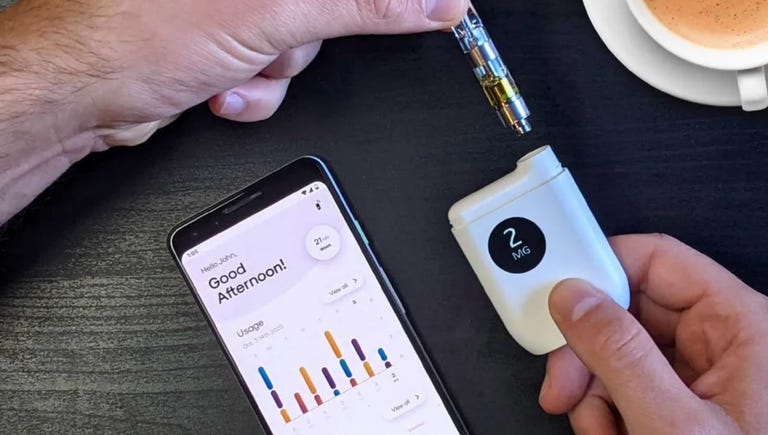Two years ago, President Joe Biden announced a review of the federal regulations of marijuana as a Schedule I controlled substance. On April 30, the US Drug Enforcement Administration followed up on that commitment by declaring it would begin the process of recategorizing cannabis as a less dangerous drug than previously indicated.
The rule change on marijuana classification still needs to complete a possibly lengthy approval process, but the proposal would be the biggest change to federal drug policy in decades. While the new rule would not legalize marijuana nationally, it would acknowledge the medical uses of cannabis and make it easier for researchers to study marijuana.
Read more: The 13 Best Marijuana Accessories and Gifts
The DEA’s change in policy marks a sea change in the federal control of marijuana, but many states have already gone much farther — 24 states and Washington, D.C., have legalized cannabis for all adults, while another 13 states allow it for medical use. Here’s what you need to know about marijuana laws in all the US states and territories and how the new DEA rule could impact current restrictions on cannabis. For more, check out these eight foods that work as happiness boosters.
Which states have legalized marijuana for recreational use?
A total of 24 states have passed laws that legalize marijuana for adults. In 2012, Colorado and Washington became the first two states to legalize recreational marijuana. They’ve been since followed by 22 more states: Alaska, Arizona, California, Connecticut, Delaware, Illinois, Maine, Maryland, Massachusetts, Michigan, Minnesota, Missouri, Montana, Nevada, New Jersey, New Mexico, New York, Ohio, Oregon, Rhode Island, Vermont, Virginia and Washington, D.C.
Which states have legalized marijuana only for medical use?
All of the 24 states that legalized recreational marijuana also allow medicinal marijuana. An additional 13 states allow medicinal marijuana only, bringing the total of states that have legalized the medicinal use of cannabis up to 37, plus Washington, D.C.
Hawaii, Louisiana, Mississippi, New Hampshire and North Dakota have legalized medical marijuana and decriminalized recreational use. Although marijuana is not legal without a medical reason, those states have decided not to prosecute residents for possession of marijuana up to a certain amount.
Alabama, Arkansas, Florida, Oklahoma, Pennsylvania, South Dakota, Utah and West Virginia have also legalized medicinal use of marijuana, but those states have not decriminalized the drug. Adults without medical reasons who are found in possession of marijuana can still be prosecuted.
What about marijuana laws in US territories that aren’t states?
For the US territories, Guam, the Northern Mariana Islands and the Virgin Islands allow both medical and recreational use of marijuana. Puerto Rico passed a medical cannabis law in 2015 but does not allow recreational use of marijuana. Marijuana in all forms is still illegal in American Samoa.
What are the new proposed rules for federal regulation of marijuana?

The legalization of marijuana has given rise to a whole industry of accessories like the Mode precision dosing vape
Marijuana is currently classified as a Schedule I controlled substance, meaning it has “no currently accepted medical use and a high potential for abuse.” Other Schedule I drugs include ecstasy (MDMA), heroin, LSD and methaqualone .
The proposed new DEA rule would reclassify marijuana as a Schedule III substance, meaning it has a “moderate to low potential for physical and psychological dependence.” Anabolic steroids, ketamine and testosterone are some of the other drugs with Schedule III classification.
The proposal would recognize the medical benefits of marijuana but not legalize the drug nationally. The proposed reclassification of marijuana comes about 8 months after the Department of Health and Human Services made its rescheduling recommendation to the DEA.
When could the new federal rules for marijuana take effect?
It will be a few months, at a minimum, before the new federal rules for marijuana regulation would take effect, and it could be much longer depending on the level of opposition to the rule change.
The DEA’s proposed rule to reclassify marijuana as a Schedule III controlled substance first goes to the White House Office of Management and Budget for an analysis of its impact. If the OMB clears the rule, it will enter a period of public comment, where arguments can be made to the DEA in support of or against the new rule.
The DEA’s public comment period will likely last about 60 days, after which a formal administrative hearing will evaluate all of the evidence related to the rule change. After the hearing, the evidence will be compiled and presented back to the DEA.
The DEA will review all of the information from its own analysis, input from the Department of Health and Human Services, public comments and the results of the administrative hearing. It can then decide to publish the final rule, amend it or not implement it at all. The federal status of marijuana will officially change 30 days after the publication of the final rule. During those last 30 days, opponents of the rule change can seek additional judicial review, delaying implementation further.
What do people in the US think about legalizing marijuana?
According to a January 2024 poll by the Pew Center, 88% of Americans believe that marijuana should be legal for either medical or recreational use. Only 11% of poll respondents said that marijuana should not be legal for any reason.
The Pew Center poll highlights a stark age divide in beliefs about marijuana legalization. Only 31% of Americans 75 years or older think marijuana should be legal for any reason, while 93% of people aged 18 to 29 feel the opposite.
For more, check out nine ways to soothe anxiety without medication and learn how to start healing your gut in four easy steps.






















+ There are no comments
Add yours